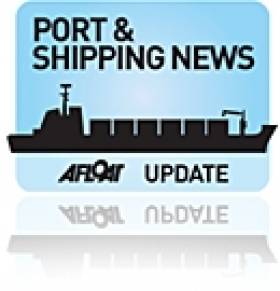Displaying items by tag: Capital Port
Dublin to Manage Dundalk Port
"In order to ensure the orderly management of the company's affairs, I have decided that the best course of action is to transfer responsibility for the port to Dublin Port Company. I would be hopeful that port activities will continue at Dundalk following the transfer.
He added, once the current difficulties are overcome, it may be the case that Dundalk Port can return to local control, in cooperation with the local authority and private sector operators.
To amalgamate the two port companies a Transfer Order will be made under the Harbours Act 1996. In addition a draft order has to be approved by both Houses of the Oireachtas before being signed into law which is expected to take place within the coming weeks.
The Co. Louth port which is equidistant between Dublin and Belfast, has shown to have a long history as an independent seaport. However the recession has had a significant impact making trading conditions particularly difficult for the company. At its peak in 2006 there were over 220 vessels calling at the port but dropped to just over 60 vessels last year. Figures for 2011 show no signs of improvement.
Vessels of up to 3,500 dwt and 106m in length can be handled at the port's six berths. Unusally for an Irish port vessels can be seen resting on the mudbank subject to the state of the tide. The port is some 8kms from the open sea and is reached along a narrow channel which requires the compulsory use of a pilot.






























































